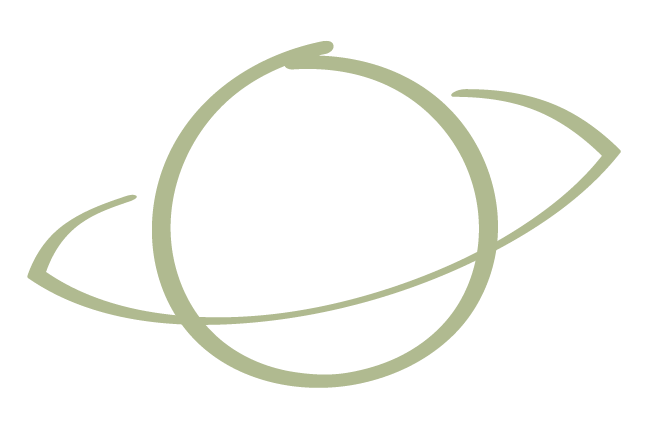Asteroid Persephone: Goddess of the Choiceless
Sharp Objects (2018), dir. Jean-Marc Vallée
Disclaimer: All opinions in this article are based on my interpretations of mythology & art, and my own research on how the asteroid Persephone behaves in astrology. This is my original work. Please cite Saturn + Honey if referencing this article. In this series on Women in Astrology, the aim is to give these figures back their dimension and power, allowing them to be full beings, seen and respected in their dark and in their light, and in their power and weakness. It’s by seeing the wholeness of an archetype that we truly understand what they say about us in life and in astrology.
Asteroid Persephone in astrology represents autonomy, choice, cycles, choice being taken from us, and reclaiming our own wants and will. Where Persephone is found, powerlessness wants to grow into sovereign power.
Persephone has many names. Persephone. Kore. Cora. Prosperina. Queen of the Underworld. Goddess of Spring. “It is for she that the cherry bleeds. That the moon is steeped in milk and blood.” (Nick Cave and the Bad Seeds, “Hard on for Love”, 1986) She is the goddess of the choiceless.
Persephone is the goddess of teenage girls. It’s during that adolescent time period that we invariably feel most connected to her story. I remember when I first learned about her, though I’m not sure how, and as a diehard pomegranate fan and the seasonally depressed teenage daughter of a controlling, anxious mother, I fell in love with her. Persephone’s story is the epitomic story of girlhood, of mothers who view the ascent from girlhood to womanhood as an unwilling abduction; the story of the way that the world – not girls themselves, but men and mothers and the world at large – cannot see our Persephonic journey through time as a natural and exploratory, because they cannot see us as autonomous beings.
“Tell them that you weren't hungry, tell them you followed the pomegranate seeds because they tasted like blood, like love."
Pauline Albanese, The Closed Doors
In the modern world there is much debate on whether or not Persephone may have chosen to make her descent into the Underworld. Was she kidnapped, raped, and imprisoned, or did she go willingly, running off with the first deep, dark sex-god she could get her hands on? I do not think she went willingly, because not much suggests that she did, and because unless it’s for the sake of rebellion alone, so few of us go to the Underworld willingly. We go to the Underworld because we have no other choice; we become Queens of the Underworld not by choice but by trauma. In this context, it also doesn’t matter, because no matter which way you slice it, Persephone is a girl who did not have free choice. Her fate was ultimately decided by those around her.
Persephone’s mythology
Persephone is having sex in hell.
Unlike the rest of us,
she doesn't know
what winter is, only that
she is what causes it.She is lying in the bed of Hades.
What is in her mind?
Is she afraid? Has something
blotted out the idea
of mind?She does know the earth
is run by mothers, this much
is certain. She also knows
she is not what is called
a girl any longer. Regarding
incarceration,she believes she has been a prisoner since she has been a daughter."
Louise Gluck, Persephone the Wanderer
Persephone is the beloved daughter of Demeter (or Ceres), and while picking flowers one day she is kidnapped by Hades (or Pluto) and taken as his prisoner in the Underworld. Demeter was devastated. In her devastation, she ravaged the earth searching for her daughter, either refusing to allow crops to grow or simply neglecting the earth in her sorrow, causing mankind to starve. Persephone’s father, Zeus, forces Hades to return Persephone to Demeter, not out of compassion but because if mankind starves, the gods will have no one to worship them.
But while Persephone was in the underworld, she ate a handful of pomegranate seeds at Hades’ behest, “[rendering] her marriage union with him insoluble.” (Demetra George and Douglas Bloch, Asteroid Goddesses) As a way to settle this dispute, Zeus ruled that Persephone would spend half the year aboveground with her mother and the other half of the year underground with her captor. During the months when Persephone is with her mother, the earth blooms and flourishes, hence Persephone’s connection with spring and summer. During the months when she is in the Underworld, the earth withers under the weight of Demeters’ rage and despair, hence Persephone’s connection with autumn and winter.
Persephone signifies the coming and going of seasons. However, what’s interesting is that she doesn’t actually bring spring back nor take its fertility away – her mother does. She is depicted as wholly inactive in her own life story. She is said to have been kidnapped – again she is a passive participant in her own life. She does not decide her final fate, either – her father decides on a compromise that offers crumbs to her mother and her husband, but not her. She starves. No one knows what she wants, what she would have chosen had she been given what so many women throughout history have not been given: true autonomy.
Persephone in astrology
Persephone is asteroid number 399. To look up your asteroid Persephone on astro.com, input asteroid number 399 into the “additional objects” section.
Persephone in astrology represents autonomy, choice, cycles, choice being taken from us, and reclaiming our own wants and will.
Where Persephone is in your chart represents an area of life where you may be, at the core, innocent. Your intentions are pure and the world is in awe and some people admire this part of your nature and others long to take advantage of it. Where Persephone is is where you are desirable and it’s critical that you recognize when someone desires you because they value you versus when they desire you because they are a hunter and they think you are an easy target. Persephone is where it may be easier to lay down and die, to let other people decide what will become of you. This is something to be careful with.
Asteroid Persephone applies a cyclical nature to the house and sign that it’s in, an area with ebbs and flows. There she is learning to recognize the cycles of life, the ebb and flow, loss and retrieval, union and separation and reunion. She’s the memory in the forgotten animal part of us that once followed the warming and cooling of the earth and the cycles of the body, and honored and accepted the passing of time and even aging rather than fighting it. She longs to grow up and start making her own decisions, but risks disappointing the people she loves if she does. This is likely a risk worth taking.
People with Persephone emphasized in their charts are learning to recognize the ways that your autonomy, choice, and will have been taken from you and reclaiming these basic rights. If Persephone is prominent in your chart, you may have felt very disempowered, especially early on in life, but you are learning that you can make your own choices and steer your own ship. You must learn to identify when the people who love you are acting in your best interest and when they’re acting on their own selfish desires. “Emphasized Persephone” may look like Persephone conjunct a personal planet or chart ruler, in the 1st house, in other angular houses, or sometimes making other major aspects to personal planets or chart ruler, etc.
Above all else, Persephone is about noticing where you didn’t have a choice, or weren’t given a choice, and making sure that in the future you will. She is about knowing what and who you are, standing up for yourself, and making your will and wants known.
Asteroid Persephone’s domicile
In astrology, Ceres (AKA Demeter) is associated with the sign of Virgo (and Cancer — connecting her to the Mother archetype), and Pluto (AKA Hades) is associated with Scorpio. If Ceres is Virgo and Pluto is Scorpio, then Libra–the sign between Virgo and Scorpio–is either the agreement between them, or the beloved/coveted object in the crossfire, Persephone herself. I consider asteroid Persephone to be “in domicile” in Libra.
“The name—of it—is “Autumn”—
The hue—of it—is Blood.”
Emily Dickinson, ‘The name–of it–is Autumn’ (Poem 656), The Complete Poems of Emily Dickinson
The Demeter/Ceres & Hades/Pluto compromise feels very Libran: Libra is a sign of compromise to begin with, and in this story no one is truly getting what they want. Every moment of joy is weighted with the sound of Saturn’s leaden boots (Saturn is exalted in Libra), the clock is forever ticking down the hall. Today she is here. Tomorrow she’ll be gone. Could Persephone’s mother ever enjoy her time with her daughter? Could Hades ever enjoy his time with his bride when he knows it will be over so soon? Could Persephone ever enjoy a life she did not choose for herself? Persephone is the one torn in half, her own want and need buried, and she carries the weight of the guilt: “I can’t please my mother, I can’t please my lover–” but what about you? What if you wanted both, or neither? What if you were given a choice, free to decide your own fate?
One of Libra’s lessons is in enjoying what’s here while it’s here, knowing that the now is no less nourishing, potent or powerful just because it’ll soon be gone. Loving for the sake of loving, creating for the sake of creating, pleasure for pleasure’s sake – these are Libran, equinox, Persephonic themes.
Libras struggle with choice because they know that decisions matter – in every choice is the unforeseeable butterfly effect – and when neither option is ideal, neither feeds all the conflicting parts of the self and all others involved equally, what is the answer? Inaction or half-hearted compromise. In myth, Persephone was not given a chance to make her own choice. Hades kidnapped her, her mother wanted her back, Hades tricked her into eating the pomegranate seeds, Zeus was the architect of the “compromise.” What did Persephone want? What did she feel? What would have happened if anyone had stopped to allow her to decide her own fate? Persephone was the object, the sweet daughter, the beautiful sex doll, the “inanimate scale” we hurry to talk about every Libra season. Never allowed freedom or autonomy – “it’s not safe;” “you are mine;” wanted for what she represents, not for what she is.
Even in the resounding memory of her myth, Persephone is talked about like a sort of bearer of light, like Lucifer (the name for Venus, ruler of Libra, when it is in its morning star phase, incidentally). In myth and pop culture alike, the myth of Persephone is talked about like she herself is the one to blame for depriving the world of warmth and life and then painting the world vibrant and abundant for the other half of the year, but in reality, Persephone is not even the one who brings the spring and takes it back – it’s her mother who does that, as she takes her rage and sorrow out on the world. Persephone does nothing. She is simply an inanimate scale shuttled between the two worlds that are fighting over her even if it means tearing her in two.


